Blurb: This piece critically examines the evolving scope of judicial review under Article 356, focusing on the Supreme Court’s interpretation of the same in the Article 370 judgment. It explores the President’s extensive powers post-proclamation and evaluates the court’s reasoning in expanding judicial oversight beyond the proclamation’s validity. By revisiting S.R. Bommai, this piece highlights the delicate balance between executive discretion and the need to preserve constitutional federalism during regional emergencies.
Introduction
The scope, implications, and application of powers under Article 356 of the Indian Constitution have been the subject of ongoing debate in both academia and judicial pronouncements. Recently, the Supreme Court In Re Article 370 considered the same in extensive detail in the light of the landmark decision of the court in S.R. Bommai vs. Union of India. Notably, the court focused and laid down the extent of judicial review on actions taken by the President after the proclamation under Article 356. While SR Bommai mainly dealt with the powers of judicial review to check the validity of the Promulgation in itself with regards to Article 74(2), the present decision focused on the exercise of executive and legislative powers by the President and the Parliament upon the promulgation as per Article 356.
The powers of the President and the Parliament post-promulgation are extremely wide and have the potential to affect the federal structure of the Constitution. Whether the powers can be kept in check or be left to the choice of the executive or the legislature is an ongoing debate. This essay argues that judicial review of actions taken by the Executive and the Union Legislature on behalf of the state during “Regional Emergencies” is necessary and constitutionally valid.
The piece is divided into two parts: in Part I, I set out the powers of the President when a proclamation under Article 356 is in force and also analyze the scope of judicial review vis-a-vis Article 356. In part II, I argue that the scope of judicial review is not limited to adjudicating on the validity of the promulgation but also to the actions taken under a valid Promulgation through the “object and purpose test”. Further, I argue that the said standard for the “object and purpose” test was not met by the passing of the Jammu and Kashmir Reorganisation Act, 2019.
Powers of the President under Art 356
The powers of the President post the proclamation are wide and meant for exceptional circumstances to restore normalcy. Article 356(1) provides that if the President is satisfied, based on a report from the Governor or otherwise, that such a situation exists, he has the power to issue a Proclamation. When the President issues a Proclamation under Article 356(1), the President may assume the functions of the State Government and the powers of the Governor or other State authorities, excluding the State Legislature. Additionally, the President may declare that the powers of the State Legislature shall be exercised by or under the authority of Parliament. Art 356(1)(c) also vests in the President the power to suspend wholly or partially the provisions of the Constitution relating to any authority of the State. It is for the President to decide which of the said powers he will exercise, and at what stage, taking into consideration the exigencies of the situation (S.R. Bommai, ¶111).
Further, the current position of law is that irrevocable actions such as dissolution of the Assembly cannot be taken by the President until the Promulgation is approved by both houses of the Parliament. The petitioners in the Article 370 case contended that the power granted under Article 356 should be confined to temporary and restorative measures, arguing that it should not be used to implement permanent and irreversible changes that a newly elected state assembly would be unable to reverse. They supported this claim by citing Article 357(2), which stipulates that laws enacted under Article 356 remain valid until the state legislature amends or repeals them. The petitioners argued that if irreversible changes were made, the state assembly would lose its ability to undo these actions, thereby limiting its legislative powers.
However, the court disagreed, stating that Article 357(2) does not restrict the scope of power under Article 356. It clarified that while Article 357(2) allows Parliament to enact laws during the Proclamation period, these laws remain valid until explicitly repealed or altered by the state legislature, even after the Proclamation ends. Further, it pointed out that irreversible actions, especially after parliamentary approval of the Proclamation, do not contravene the Constitution. The court warned that allowing challenges to executive actions based on their irreversible nature would create unnecessary obstacles in day-to-day governance thus hindering the restoration process that Article 356 aims to achieve.
In doing so, I argue that the court has given effect to the fact that the power under Article 356 is exceptional. It has previously been argued that the Court is internally inconsistent, as it excludes any limitation on Article 356 powers and ‘executive actions’ from the scope of Article 357(2), while simultaneously recognizing Article 357(2)’s purpose of restoring federal relations to their original state. However, I argue that the court finds the middle ground not in barring the taking of irrevocable actions, but by limiting it through the object and purpose test which I discuss in the next part.
Scope of judicial review: Whether it extends only to checking the validity of promulgation or also to actions taken by the president after the promulgation?
The SR Bommai case monumentally changed the course of how the powers under Article 356 are used. One such important intervention was with regard to the extent of actions that the President may take after a valid proclamation.
The Bommai case for the first time held that the relevance of material based on which the Promulgation under Article 356 was imposed can be subject to judicial review. Further, it adopted the Wednesbury Standard i.e., that Article 74(2) only bars the questioning of the advice and is not a bar against the scrutiny of the material based on which the President had arrived at his satisfaction. While the above view on judicial review has been celebrated for reducing the discretionary power of the Executive and checking the abusive exercise of Emergency powers, another important finding of the court regarding the powers of courts to review the actions taken by the President and the Union Council of Ministers after a valid proclamation has often not been discussed. Thus, the question is whether the courts can dictate what actions as per Article 356(1) and Article 357 can be taken.
A holistic reading of Bommai indicates that the actions of the President after issuing a Proclamation are subject to judicial review. However, there were some variations in the opinions of the judges in Bommai on the standard that needed to be applied by the Court to test the validity of the exercise of power by the President after the issuance of the Proclamation. Justice Sawant applied the standard of whether the exercise of power was mala fide or palpably irrational. Justice Reddy observed that the advisability and necessity of the action must be borne in mind by the President.
Further, Justice Sawant also noted that whether in a particular situation, the extent of powers used is proper and justifiable is a question that would remain debatable and beyond judicially discoverable and manageable standards unless the exercise of the excessive power is so palpably irrational or mala fide as to invite judicial intervention. While the court recognized the effects of intervention with regards to separation of powers, it held that in certain cases power of judicial review was available. Thus, there was no clear majority view on whether the actions of the President after issuing a Proclamation are subject to judicial review.
However, the 5-Judge bench in the Article 370 case extensively dealt with the question in its majority opinion. Since in Bommai, there was no majority opinion on the issue, the 5-judge bench decision in the Article 370 case, is the law on whether the actions by the President after issuing a Proclamation are subject to judicial review. The Court held that the actions of the President after issuing a Proclamation are subject to judicial review (¶229). Specifically, the person challenging the exercise of power must prima facie establish that it is a mala fide or extraneous exercise of power. After a prima facie case is made, the onus shifts to the Union to justify that the exercise of power had a reasonable nexus with the object of the Proclamation. Thus, the court in this case held that the Bommai standard for testing the validity of the Proclamation also extends to the justiciability of the extent of powers used by the President. Another important question that arises is how the exercise of power must be tested for mala fide or extraneous exercise of power. The next part answers the same.

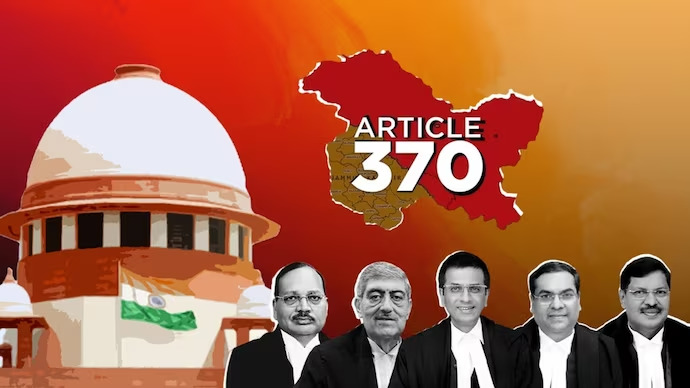
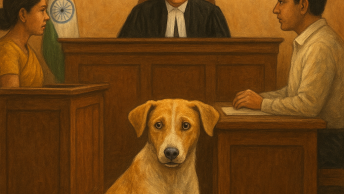
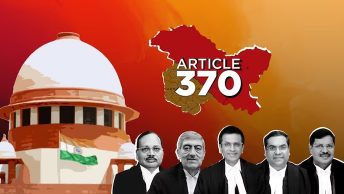
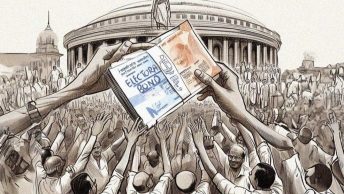
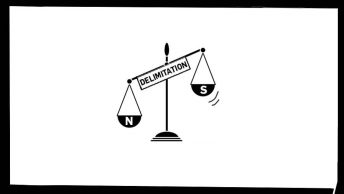

Secesta, Türkiye’nin lider dijital çözüm sağlayıcısı olarak işletmelere özel SEO hizmetleri, yazılım geliştirme ve dijital pazarlama çözümleriyle fark yaratıyor. İstanbul merkezli bir ajans olan Secesta, arama motoru optimizasyonu (SEO) konusunda derin uzmanlığıyla markaların Google’da üst sıralarda yer almasını sağlıyor. Site içi SEO, teknik SEO, mobil uyumluluk ve hızlı yüklenen web siteleri geliştirme gibi konularda sektöre yön veren Secesta, aynı zamanda dönüşüm oranı yüksek reklam kampanyalarıyla ROI odaklı dijital pazarlama stratejileri sunuyor. Secesta’nın SEO hizmeti, sadece anahtar kelime odaklı değil; kullanıcı deneyimi, içerik kalitesi ve teknik altyapı gibi tüm yönleri kapsayan bütünsel bir yaklaşımı benimsiyor. ASP.NET Core, PHP ve WordPress teknolojilerinde uzman ekibiyle, performans odaklı web yazılımları geliştiren Secesta, her projeye özel SEO uyumlu kodlama ve içerik stratejileri sunarak uzun vadeli başarıya odaklanıyor. Google Ads ve Meta reklam yönetimi gibi dijital pazarlama alanlarında da %100 müşteri memnuniyetini hedefleyen Secesta, markaların dijital dünyadaki görünürlüğünü artırmak ve rekabet avantajı sağlamak için ideal bir iş ortağıdır. Eğer siz de dijitalde görünür olmak, SEO gücünüzü artırmak ve kalıcı başarılar elde etmek istiyorsanız, doğru yerdesiniz: Secesta ile dijitalde kazanın!